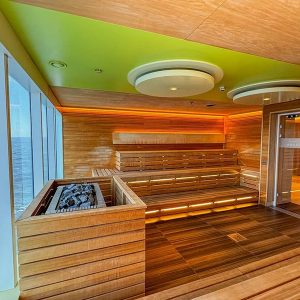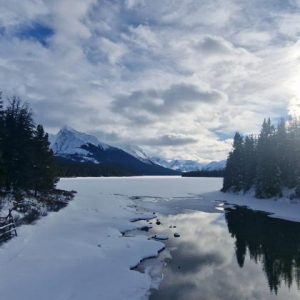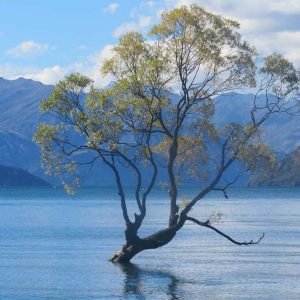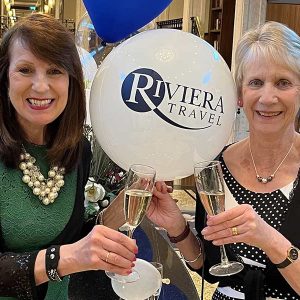Taking a “Semester At Sea” sounds like the height of youthful luxury, a gaggle of 20-year-olds circling the world while gaining cruisy credits for decadent degrees. However, it is not just young undergrads educating themselves on a global scale.
On every voyage, a small contingent of senior passengers known as “Lifelong Learners” can also pay to circumnavigate the world, joining in with classes, community college activities, clubs, global studies and cultural lectures on board. On land, there is independent and group travel available as well as a plethora of philanthropic projects.
It’s a great way to visit ten different, non-western countries with no jet lag and a whole team of professionals on board as an educational, social and, of course, medical back-up. As the ship approaches each country there are relevant lectures – mandatory for everyone – outlining the culture, history, language, geography and customs of each country as well as safety precautions and travel tips. Inter-port lecturers also come on board as specialists in the countries about to be visited with a more personal insight into the approaching destination.
With everyone eating meals together and nightly socializing in the Faculty Lounge, there are multiple opportunities to meet visiting experts, faculty members, staff and the 650-strong student body. Conversation, interaction and entertainment can be highly stimulating with such an eclectic group of liberal arts professors and students. It is different with each voyage, depending on the mix of professionals on-board. When I went we were treated to a cello recital, a play put on by the drama department, an emotive presentation from a Vietnam vet, an introduction to Buddhism, quilting, yoga and ballet classes, photography demos and a scrabble tournament. Everyone was asked to showcase their talents: I contributed by lecturing on tailoring in the Far East and giving writing tips for bloggers.
Although the focus is education and self-improvement, it’s not all highbrow. There are hilarious equator parties with fancy dress, crazy competitions and the traditional dunking in (fake) fish guts. Everyone also gets the chance to perform in musical and dramatic entertainments as well as karaoke evenings, sports and a fundraising auction. Although the ship has been refitted with classrooms, library and computer labs, the top deck is dedicated to sun-worship, swimming and pool bar – maybe with a textbook in hand instead of the usual holiday novel.
The seagoing seniors form an important part of the extended family on the ship, acting us surrogate ‘parents’ and ‘grandparents’ for the younger generations. There are even a few schoolkids on-board, along for the ride as faculty and staff family.
Many seniors, staff and students use this opportunity to give back, donating money and time to underprivileged people in South America, Africa and the Far East. On my voyage, several students helped out at a hospital in Cape Town rather than going on the typical safari. When my family and I visited Myanmar with a group of students and seniors, we took money raised on-board to an orphanage at Inle Lake where we spent the afternoon experiencing the lifestyle of the trainee monks in the Dickensian dorms.
With around 100 days at sea and on land, Semester At Sea is a great way to discover new experiences, unusual environments and cultures as well as pursue personal and physical improvement and emotional development – all new trends for today’s traveller. Some of the action is staged, such as the visit to Vietnam’s Cu Chi tunnels which have been widened for the western physique and equipped with picnic facilities and gift shops. And perhaps the trip to the silk factories of Inle Lake where “giraffe” women – with necks unrealistically extended by golden hoops – have been specifically brought in to attract tourists.
But much of it is authentic and there are far more opportunities for travelers to experience the reality of a country than on regular vacations. For example, students, seniors and faculty can learn about local customs during a homestay with a Japanese or Indian family. There are overnight trips to “untouchable” villages where everyone works, eats and sleeps as the locals do. There are also opportunities to meet university students and professors in each country during welcome receptions, sports competitions and lectures.
The World of Travel in 2020 study predicts travelers will seek on average up to four very different experiences per year with a passion for ‘doing’ rather than ‘having’. A voyage with Semester At Sea really fits this bill with its fusion of education and travel.
“Semester at Sea opens your eyes to others all around the world, in cultures completely different from your own, and in the process, helps you to understand yourself and your country a little bit better than before.”
Alisia Bentz Bergsman, Lifelong Learner
For more information visit www.semesteratsea.org
See all our Cruise Reviews











